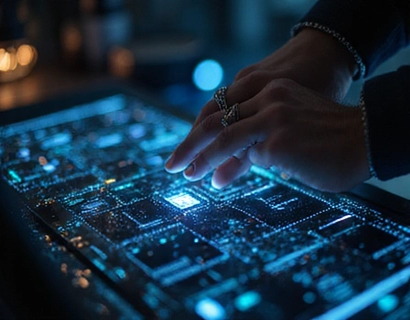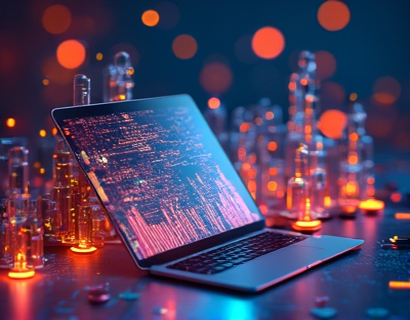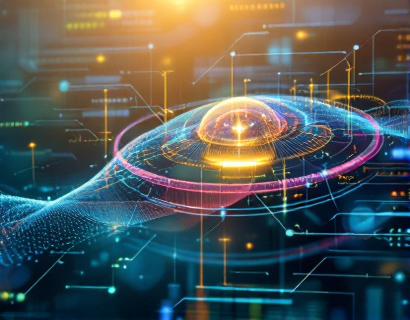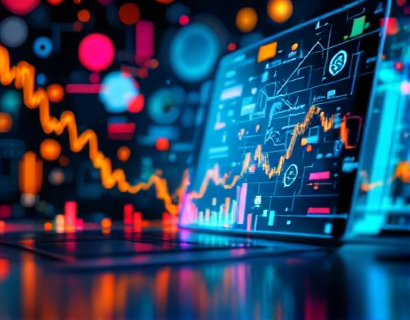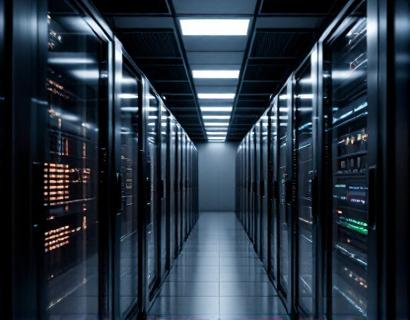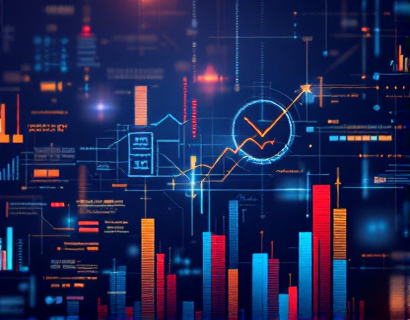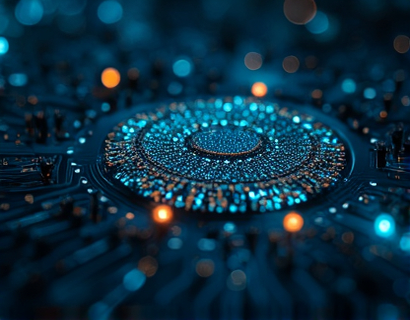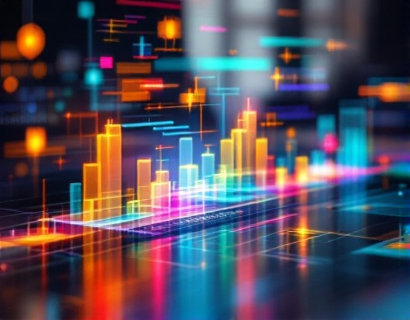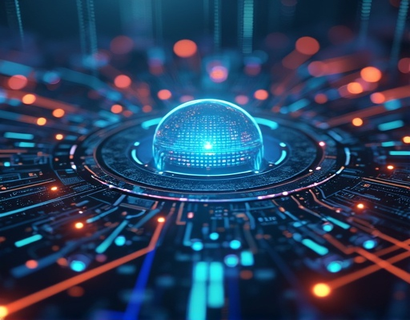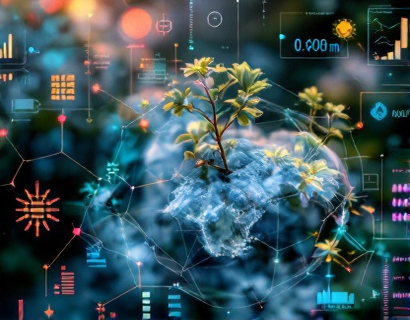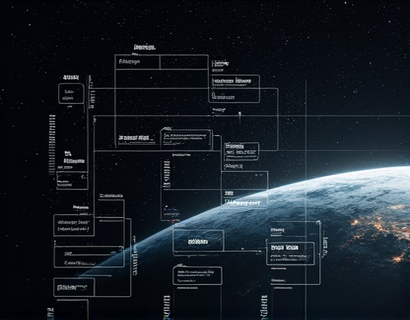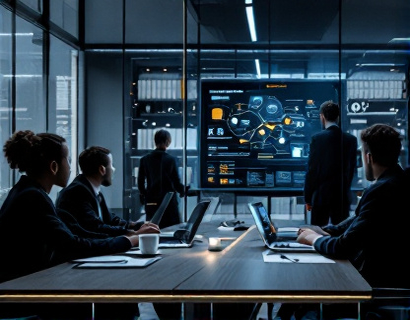Elevating Digital Experiences: The Synergy of AI and Crypto
The integration of artificial intelligence and cryptocurrency is redefining the digital landscape, creating unprecedented opportunities for innovation and enhanced user experiences. This fusion leverages the strengths of both technologies, offering solutions that are not only more efficient but also more secure and personalized. As we delve into this topic, we will explore how AI and crypto are transforming various aspects of digital interactions and app services, providing insights that are crucial for tech enthusiasts and innovators aiming to navigate the future of connected experiences.
The Intersection of AI and Crypto
The convergence of AI and cryptocurrency is a relatively new yet rapidly evolving field. AI, with its capabilities in data analysis, pattern recognition, and predictive modeling, complements the decentralized and secure nature of blockchain technology. This synergy is giving rise to advanced applications that were previously unimaginable. For instance, AI-driven algorithms can analyze vast amounts of blockchain data to identify trends, predict market movements, and optimize trading strategies, thereby enhancing the efficiency and accuracy of cryptocurrency investments.
Moreover, AI can improve the security of crypto transactions by detecting and mitigating fraudulent activities in real-time. Machine learning models trained on historical transaction data can identify anomalies and suspicious patterns, providing a robust defense against cyber threats. This integration not only safeguards user assets but also builds trust in the crypto ecosystem, a critical factor for widespread adoption.
Enhancing User Experiences through Personalization
One of the most significant impacts of AI in the crypto space is the enhancement of user experiences through personalization. AI algorithms can analyze user behavior, preferences, and transaction history to offer tailored recommendations and services. For example, a crypto wallet app powered by AI can suggest optimal times for buying or selling cryptocurrencies based on the user's past behavior and current market conditions. This level of personalization not only improves user satisfaction but also increases the likelihood of better investment decisions.
Personalization extends beyond transaction advice. AI can also customize the user interface and experience of crypto applications, adapting to individual preferences and usage patterns. This adaptive approach ensures that users interact with the app in a way that feels natural and intuitive, reducing friction and enhancing overall usability. As a result, users are more likely to engage with the platform consistently, fostering long-term loyalty and trust.
Smart Contracts and AI: A Powerful Combination
Smart contracts, self-executing contracts with the terms directly written into code, are a cornerstone of blockchain technology. When combined with AI, these contracts become even more powerful and versatile. AI can enhance smart contracts by adding layers of intelligence that allow for dynamic adjustments based on real-time data. For instance, an AI-powered smart contract can automatically adjust the terms of a loan agreement based on the borrower's credit score fluctuations or market interest rates.
This dynamic adaptability is particularly useful in decentralized finance (DeFi) applications, where transparency and efficiency are paramount. AI can help automate complex financial processes, reduce human error, and ensure that transactions are executed precisely as intended. The result is a more robust and reliable financial system that can operate without the need for intermediaries, lowering costs and increasing accessibility.
Security and Fraud Prevention
Security remains a top priority in the crypto world, and AI plays a crucial role in fortifying defenses against cyber threats. Advanced machine learning models can analyze network traffic, transaction patterns, and user behavior to detect and prevent fraudulent activities. These models can identify unusual patterns that may indicate a hack or a phishing attempt, allowing for immediate intervention to protect user assets.
Moreover, AI can enhance the security of private keys and wallet management. Biometric authentication, powered by AI, can provide a more secure and convenient way to access crypto assets. Face recognition, fingerprint scanning, and voice recognition, all enhanced by AI, offer multi-factor authentication that is both secure and user-friendly. This not only protects user accounts but also simplifies the user experience, making it easier for individuals to manage their crypto assets securely.
Decentralized AI: A New Paradigm
The integration of AI with blockchain technology is giving birth to decentralized AI systems, which promise to democratize access to advanced computational resources. In a decentralized AI model, computational tasks are distributed across a network of nodes, eliminating the need for centralized servers and reducing the risk of single points of failure. This approach not only enhances security but also makes AI more accessible to a broader audience, including those in regions with limited internet infrastructure.
Decentralized AI platforms can leverage the collective computing power of the network to perform complex tasks, such as training large machine learning models, without the need for expensive hardware. This democratization of AI resources can accelerate innovation, enabling developers and researchers to experiment with cutting-edge technologies without significant financial barriers. As a result, the crypto and AI ecosystem is fostering a more inclusive and collaborative environment for technological advancement.
Use Cases in Various Industries
The impact of AI and crypto integration extends beyond the financial sector, influencing various industries and transforming traditional processes. In the supply chain, AI-powered blockchain solutions can provide end-to-end transparency, tracking products from manufacture to delivery. This level of visibility helps in identifying bottlenecks, reducing costs, and ensuring compliance with regulatory standards. For instance, AI can analyze data from IoT devices to predict maintenance needs, preventing equipment failures and optimizing logistics.
In the healthcare sector, AI and crypto can enhance patient data management and secure sharing of medical records. Blockchain ensures the integrity and privacy of health data, while AI can analyze this data to identify patterns and predict patient outcomes. This combination can lead to more personalized and effective treatments, improving patient care and outcomes. Additionally, AI-driven diagnostics powered by blockchain can ensure that medical data is tamper-proof and accessible only to authorized personnel, enhancing trust and security.
The real estate industry is another area where AI and crypto are making significant strides. Blockchain-based platforms can streamline property transactions, reducing the need for intermediaries and lowering transaction costs. AI can analyze market data to provide insights into property values, trends, and investment opportunities, helping buyers and sellers make informed decisions. Smart contracts can automate the execution of real estate agreements, ensuring that all terms are met and reducing the risk of disputes.
Challenges and Considerations
Despite the numerous benefits, the integration of AI and crypto is not without challenges. One of the primary concerns is the regulatory landscape. As both technologies operate in relatively uncharted territories, regulatory frameworks are still evolving. Compliance with varying laws and regulations across different jurisdictions can be complex and time-consuming. Innovators and businesses must stay informed and adaptable to navigate this dynamic regulatory environment.
Another challenge is the technical complexity involved in developing and maintaining AI and blockchain systems. Integrating these technologies requires a high level of expertise and resources. Developers need to possess a deep understanding of both AI algorithms and blockchain mechanics to create robust and efficient solutions. This expertise is often in short supply, making it crucial for organizations to invest in training and talent acquisition.
Scalability is another significant consideration. While blockchain technology offers decentralization and security, it often faces scalability issues, particularly in terms of transaction speed and cost. AI can help mitigate some of these issues by optimizing blockchain operations and developing more efficient algorithms. However, ongoing research and development are necessary to address these challenges and ensure that AI and crypto solutions can scale effectively.
Future Prospects
The future of AI and crypto integration holds immense potential, with several promising developments on the horizon. One area of focus is the development of AI-driven decentralized autonomous organizations (DAOs), which combine the power of AI with the decentralized governance model of DAOs. These organizations can make data-driven decisions, optimize operations, and distribute rewards based on performance metrics, all while maintaining transparency and accountability.
Another exciting prospect is the emergence of AI-powered non-fungible tokens (NFTs) that go beyond digital art and collectibles. AI-generated NFTs can offer unique and dynamic content, such as personalized avatars, virtual experiences, and interactive stories. These NFTs can create new revenue streams and enhance user engagement in various digital platforms.
Furthermore, the integration of AI and crypto can drive advancements in quantum computing, a technology that has the potential to revolutionize computational capabilities. AI can help optimize quantum algorithms and simulate complex quantum systems, accelerating the development of quantum technologies. This synergy could lead to breakthroughs in fields such as cryptography, materials science, and drug discovery.
Conclusion
The fusion of AI and crypto is transforming the digital landscape, offering innovative solutions that enhance security, personalization, and efficiency. As these technologies continue to evolve, they will play an increasingly vital role in shaping the future of connected experiences. For tech enthusiasts and innovators, understanding the intersection of AI and crypto is essential for staying ahead in a rapidly changing world. By embracing this synergy, we can unlock new possibilities and create a more secure, personalized, and inclusive digital ecosystem.












